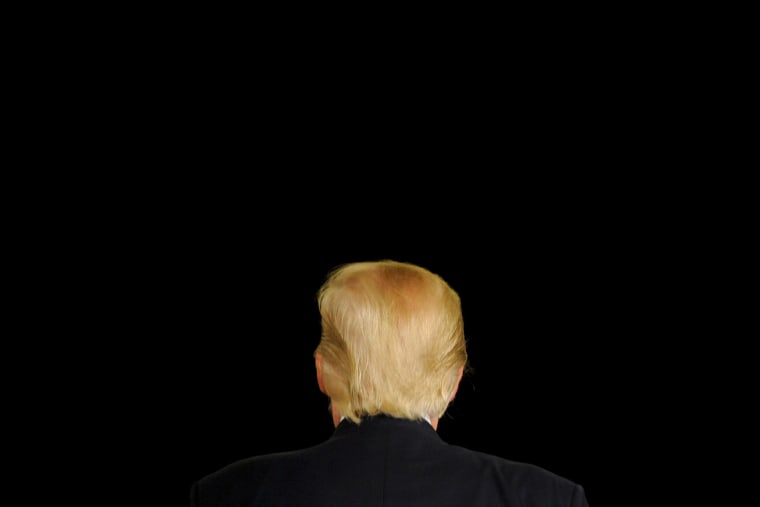For reasons that no one seems able to explain, Donald Trump wandered into dangerous waters seven days ago. With no plan or strategy for success, the president thought it'd be a good idea to threaten to shut down the border between the United States and Mexico this week unless his demands were met.
Who, exactly, the president was threatening was a little murky. The Republican initially said Mexico had to satisfy his unspecific demands or he'd close the border. He then said Congress had to give him what he wants or he'd close the border. All of this, Trump said, would unfold over the next few days.
That is, until this morning. Neither Mexico nor Congress made any meaningful effort to meet the Republican's demands, but Trump backed down anyway.
President Donald Trump said Thursday that he would give Mexico one year to stop the flow of illegal drugs entering the U.S. before imposing tariffs or closing the southern border, backing down from previous warnings that a border closing was imminent."We're gonna give them a one-year warning, and if the drugs don't stop, or largely stop, we're going to put tariffs on Mexico and products, in particular cars," Trump told reporters at the White House on Thursday. "And if that doesn't work, we're going to close the border."
He added, "You know I will do it. I don't play games."
But therein lies the problem: everyone, here and around the world, knows Trump does play games. He makes threats, he thumps his chest, and he insists that we all marvel at his toughness -- right before the president backs down and quietly slinks away.
It was just four days ago when White House counselor Kellyanne Conway told Fox News, in reference to Trump's threat to close the border, "It certainly isn't a bluff. You can take the president seriously."
Really? How's that quote holding up?
The same day as that interview, acting White House Chief of Staff Mick Mulvaney said it would take "something dramatic" for Trump to back down from his threat. Four days later, nothing dramatic happened, and the president retreated anyway.
If this were the first time Trump bluffed badly and lost, it would be a milder embarrassment. But this same dynamic has become a staple of his presidency.
Trump bluffed during his government shutdown. He bluffed during the fight over health care. He bluffed with North Korea. He tried bluffing with James Comey. He bluffed with China -- more than once.
As a Washington Post analysis added in January, "Though the president routinely touts his abilities as a dealmaker, he often gives in when pressed.... From the war in Afghanistan to his family separation policy to threats to close the southern border, Trump will often float policy proposals with little strategy for how to implement them, then surrender when the proposals flounder."
The irony is, the White House goes out of its way to pretend this reality doesn't exist. When Trump abandoned the international nuclear agreement with Iran for reasons that never really made any sense, he declared, "The United States no longer makes empty threats. When I make promises, I keep them."
Which is true, just so long as we overlook all of the threats he backed away from.
Vice President Mike Pence said a while back, "President Trump is a leader who says what he means and means what he says." Imagine how much more effective this administration would be if Pence weren't so hilariously wrong.
